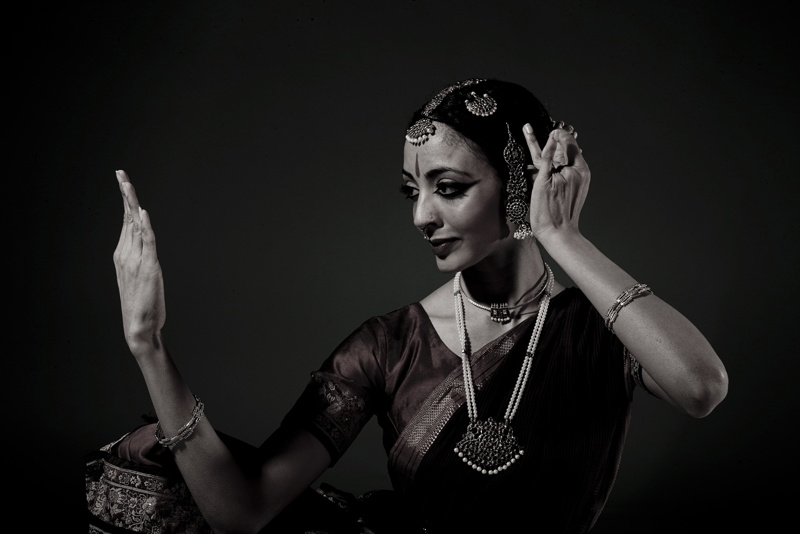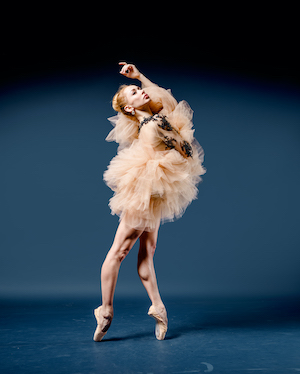“Abandon any preconceived, exotic ideas about dance from South India”
This month Sadler’s Wells is presenting Wild Card – an initiative which opens up their Lilian Baylis Studio to the next generation of choreographers and dance makers. This year’s Wild Card is UK’s exciting dance artist Seeta Patel. The Wonderful World of Dance’s Kellan Steck-Refoy spoke with Seeta about her upcoming performance in London.
An evening speaking with the independent artist Seeta Patel can make for some fascinating conversation, but first, abandon any preconceived, exotic ideas about dance from South India!
Seeta is a champion of the classical dance form Bharatanatyam – but she’s not a fan of the word tradition to describe the form, “it’s just about what that word can mean, what it is attributed to. I think the traditional aspect of the art form that I do is more about the communication of it through the generations and the teaching of it, the legacy of it. I very much value my teachers and the way they have passed on knowledge to me and so many others. This aspect of tradition and respect is very beautiful and valuable.”
Seeta prefers the term classical as it is timeless and borderless, “when you start to attribute words like temple dancing, ethnic dance, or even a generic term like South Asian dance to Bharatanatyam, I think it creates an exotic, foreignness to it that constantly labours the genre with cultural baggage. I feel we can move beyond this. The word ‘classical’ and the idea of classicism is about form, rigour and a certain aesthetic. I think this shift in perception would allow more appreciation of Bharatanatyam in a deeper and richer way.”
She often asks herself how much information should she give for people to appreciate the classical presentation of Bharatanatyam. It’s a constant battle between spoon feeding an audience and allowing them the chance to experience and understand the genre over time and with more experience of it. With regards to her upcoming performance, “I’d rather the audience feel dissatisfied that they didn’t understand every word and every gesture, but actually experience something that moves them, than the work becoming a lecture demonstrating, dissecting every movement.”
Seeta is not only an accomplished dancer and choreographer she’s also a film maker. Her portfolio contains enticing cinematic gems which often incorporate dance and movement with unconventional and thought provoking themes.
We touched upon the subject of film being used as another medium during live performance, “I was quite excited to be able to use a video element and let it be a thing within the stage rather than communicating and interacting with it…I was really thinking about all the ways that choreography can come across. I did think it was quite interesting to be able to have those moments where the video was on stage but you weren’t dancing with it all the time. But I know that when people come and watch dance, they just want to see us moving…it’s a choice in the end and I was willing to stand by mine.”
The new work she is premiering this month embraces an ethos that Seeta is quite passionate about, “to be able to present an evening, and be welcomed to present an evening that is about good classical dance and music without the usual cultural baggage is really exciting and a wonderful privilege.”
Seeta explains that she’s approached her new piece at Sadler’s Wells differently, “in the past when I’ve done classical work I have always had an accompanying English narration – either throughout or at the beginning – of the Tamil/Telugu/Sanskrit poetry, and I usually enact it on the stage simultaneously. This time I’ve gone a little bit further afield from that and I won’t be enacting it directly because I want to push the audience a bit further. I’m sure there’ll be people who want more information and who wish that I translated all of it. But there are equally other people who just want to have the experience of watching. So I decided to strip away some of the information given from the stage and offer it as programme notes.”
Seeta’s UK premiere of Something Then, Something Now will most certainly be an evening of incredible skill and artistry, but most importantly, trailblazing on every level.
About Wild Card
Wild Card, a Sadler’s Wells initiative opens up the theatre’s Lilian Baylis Studio to the next generation of choreographers and dance makers.
The initiative aims to bring fresh perspectives to the stage and each time gives emerging artists from different spectrums of the dance landscape the opportunity to curate a mixed bill evening of cutting edge work.
While championing Bharatanatyam under the guidance of Mavin Khoo, Seeta has at the same time been forging a distinctive career in contemporary dance. She has performed both nationally and internationally with companies such as DV8 Physical Theatre, and presented her own work at the Southbank Centre.
Seeta’s curation at the Lilian Baylis Studio will be an intimate evening of dance and music from South India, featuring an orchestra of Carnatic musicians. After her solo work she will offer a rare opportunity to see seasoned dancer and musician Pushkala Gopal in an up-close presentation of song and abhinaya, the narrative aspect of Bharatanatyam which portrays feeling and expression.
To book tickets, visit Sadler’s Wells.
by Kellan Steck-Refoy


